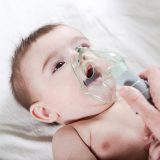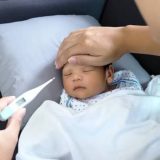Ear piercing in children is a common practice in many cultures. If you are considering getting your child’s ears pierced, there are a few things you should keep in mind:

1. Age: The Age varies, but generally, children after 6 months of age are considered better candidates for ear piercing. In some regions, it’s considered at a much younger age. However, it’s safer to get ear piercing done at least after the 1st dose of the DPT vaccine (which is after 6 weeks of life).
2. Safety: Safety should be a top priority. Ensure that the piercing is done by a trained professional in a hygienic environment. They should use sterile equipment and follow proper aftercare procedures to minimize the risk of infection.


3. Aftercare: After the piercing, proper care is crucial to avoid infections and complications. Follow the aftercare instructions provided by the professional, such as cleaning the piercings regularly with a saline solution or prescribed antiseptic.


Remember, every child is different, so it’s important to evaluate what is best for your specific situation. If you’re unsure, you can consult with a pediatrician or a professional piercer for personalized advice before proceeding.


